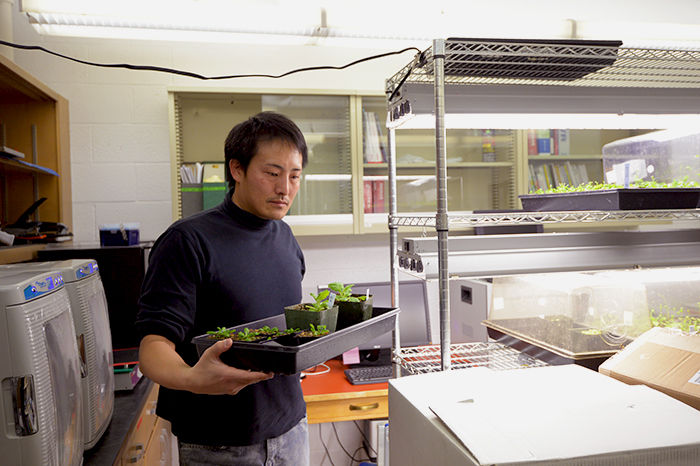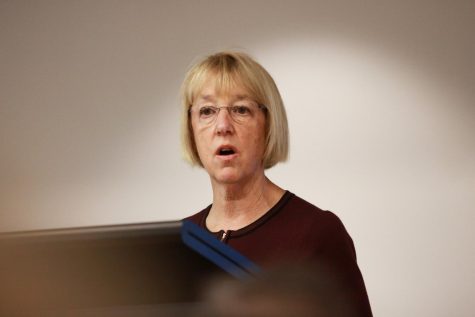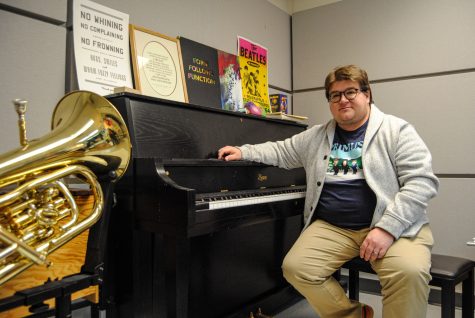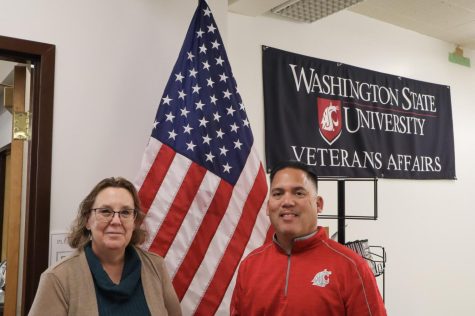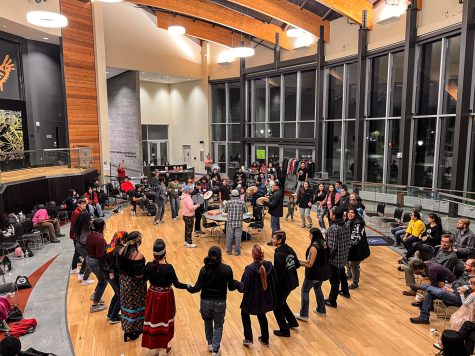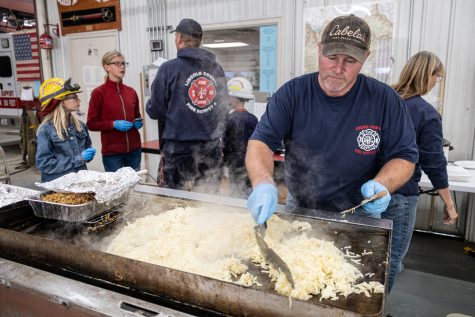Plant hostel to test planet hostility
Professor Kiwamu Tanaka moves plants around the “plant hotel” lab in Johnson Hall. Seedlings will undergo simulation with climate change factors such as heat, drought, pests, pathogens, and higher salt levels in soil.
March 1, 2017
Two WSU researchers will be using a “plant hotel,” a machine that analyzes seedlings, to understand better how climate change affects plant growth.
WSU plant physiology assistant professor Henning Kunz and plant pathology assistant professor Kiwamu Tanaka will conduct the experiment, which is expected to begin in January 2018.
The study aims to find how plants are affected by factors such as heat, drought, pests, pathogens and higher salt levels in soil associated with climate change. The fully automated “plant hotel” can analyze these effects on up to 6,000 seedlings in one experiment, and can simulate various climate conditions.
Kunz and Tanaka will introduce genetic mutations in an effort to link stress tolerance from these factors to plant genomes.
The experiment addresses concerns of rapid population growth and climate change, Tanaka said. Tanaka cited a 2014 statement by the U.S. Agency for International Development, which concluded world agricultural production must increase by at least 70 percent under all growth conditions by 2050 in order to meet the needs of population growth.
“Our project sets out to improve crop yields even under adverse environmental conditions,” Tanaka said. “In other words, our study will affect food security, economy and human health.”
The plant hotel will help to overcome the “laborious, inaccurate and costly” process of analyzing large numbers of seedlings simultaneously, Tanaka said. The technology used in the experiment is expected to be utilized by at least 20 WSU research groups, he said.
Helmut Kirchhoff, WSU assistant professor of the Institute of Biological Chemistry, said the study will use automated, non-destructive cameras designed to measure each plant’s physiological parameters. This allows the researchers to measure the physical effects of stress on thousands of plants in one experiment.
“Recent developments in light sources, cameras and computer software power paved [the] way for non-invasive measurements of plant performance,” Kirchhoff said.
The experiment will be the first of its kind in a developing field, Tanaka said.
“The system will give WSU’s research programs an advantage over institutions that cannot offer a similar research infrastructure in [the] U.S.,” Tanaka said.
The study received funding from the M.J. Murdock Charitable Trust for the LemnaTec Scanalyzer Discovery Platform. WSU’s College of Architecture, College of Arts and Sciences, School of Biological Sciences and Office of Research, and Human and Natural Resource Sciences have provided more than $500,000 in additional funding.


